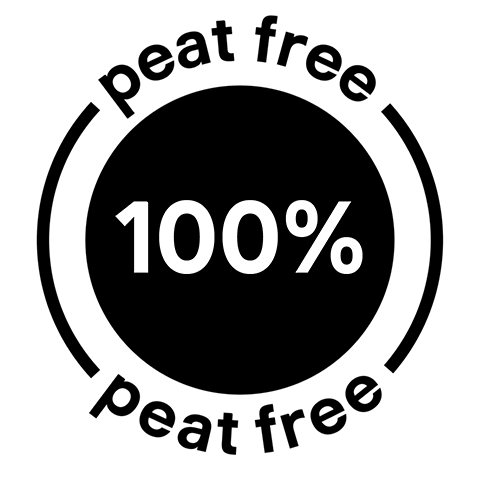Moving to peat-free




We're committed to moving away from peat in our products, as peatlands are vital in helping to protect natural habitats and tackle climate change.
Since 2023, we’ve been completely peat-free for all bagged composts, and by 2026 we will sell only 100% peat-free plants.
B&Q has been a leading retailer in peat-free product offerings for over 30 years, having first launched a peat-free compost in 1991. As well as selling only 100% peat-free bagged compost since 2023, we have stopped selling 100% peat in 2008 and introduced a range of peat-free bedding plants in 2014.
Why is moving away from peat products important?
Climate change
Peatlands are the world’s largest land store of carbon, much more than the Amazon rainforest. They also continue to absorb carbon and help prevent flooding with Sphagnum mosses, which are key to creating peat bogs, holding up to 20 times their weight in water. When peat is extracted and added to our gardens, it breaks down very quickly, releasing that ancient carbon into the atmosphere – contributing to climate change in a similar way to burning fossil fuels or cutting down rainforests.
Habitat
Peatlands create bogs and wetlands; providing unique ecosystems for a diverse range of wildlife. Birds like hen harriers and dunlins; insects such as dragonflies, heath butterflies and jewel beetles; and an unusual insect-eating plant, the sundew, all call peatlands home. Peat is created by nature over thousands of years, taking a long time to regenerate which is why reducing our peat consumption and moving to peat-free gardening is crucial.
Find out more here about how B&Q has partnered with the Woodland Trust, the UK's largest woodland conservation charity, to help restore the 279 acres of upland peat bog at Snaizeholme in North Yorkshire: B&Q and the Woodland Trust.
Why use compost at all?
Compost has a superior structure to normal garden soil – both nutritionally and physically. Composts offer the specific nutrients that your plants need for the various stages of healthy growth. Some composts will also have organic matter added to them to help change the physical structure of the soil, making it richer or denser so that it's better at holding water.




Developing a peat-free compost
We’ve learnt a huge amount about how to source and mix alternative ingredients to get exactly the right balance for a great peat-free compost. To fulfil our customers’ needs to enjoy their gardens, we’ve worked with our suppliers to improve the quality of peat-free composts and to secure sufficient volumes to achieve our peat-free commitment.
For a number of years we’ve partnered with suppliers to develop a high quality 100% peat-free formulation under the GoodHome brand. This high-quality 100% peat-free compost, launched in 2020, is formulated using coir (coconut fibres), and other ingredients to replace peat. We have invested heavily in this formulation, and work continually to ensure consistency and make improvements.

We now sell a large range of 100% peat free composts for all jobs in the garden under our GoodHome brand, as well as branded peat-free composts, and in 2023 we moved to selling only 100% peat-free bagged composts . Look for “peat free” labels in store.
B&Q is committed to helping our customers encourage nature in their gardens and outdoor spaces. Ahead of legal requirements, in 2018 we were the first retailer to remove neonicotinoids from our supply chain, in 2019 we removed all products containing metaldehydes, and 2020 saw the removal of glyphosates from our range.
We aim to help customers make more sustainable choices. This year, we have introduced plastic plant pot recycling stations at 100 stores across the UK, and will be using the recycled plant pots to create our new Blacksmith Planter.
Helping encourage nature
Top tips for nature
Here’s our top ten tips for bringing nature closer to home. These steps are easy and affordable and you don’t even need a garden – you can green up a balcony or a doorstep!






